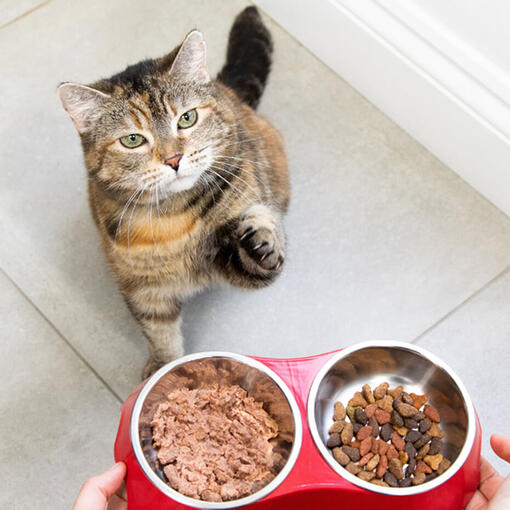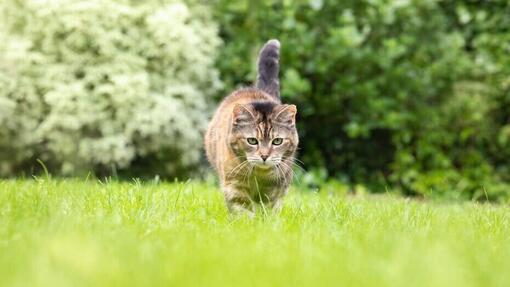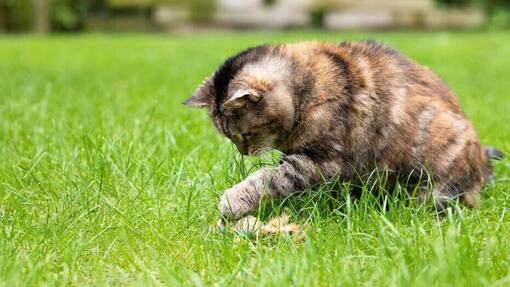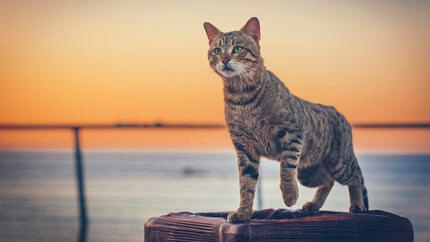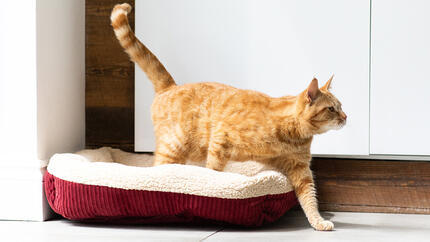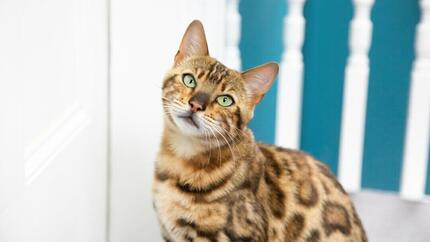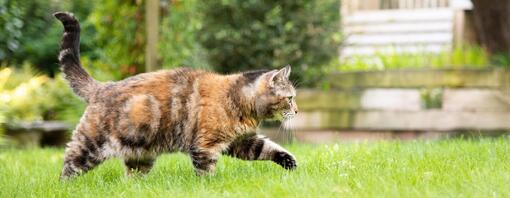
If you have a cat, you are likely no stranger to receiving ‘gifts’ from time to time. These treasures may take the form of dead spiders, mice, bigger prey like rabbits or squirrels (if your cat is a particularly adept hunter) or they may even be inanimate objects like teddies. This behaviour is one that frequently baffled owners, particularly when the presents take the form of dead animals and there is delicious food that is readily available at home.
So, why do cats bring you dead animals? Keep reading to find out all you need to know and why it is actually quite a compliment to receive these little presents.
Why do cats bring you dead animals?
The simple answer to why your cat brings you dead animals is because it is a survival instinct. Your feline is a tiny predator and although they have been domesticated for thousands of years, this instinct to hunt can still be seen in your pet.
In the wild, mother cats would teach their kittens how to survive, which included finding food and eating it. With castration and spaying becoming more commonplace, pets often do not have any offspring to pass their hunting know-how down to, so maybe they are trying to teach their humans instead.
Why do cats bring mice home?
Your cat bringing you mice and dead animals is actually quite the compliment too. According to cat behaviourist, Anita, cats will bring home the prey that they have hunted and killed to an area they feel safe, comfortable and secure. It may also be because they want to share their catch with their family too!
Cats prefer bringing their catch of the day back to their territory, which unfortunately is the house. This is normal cat behaviour and is impossible to stop, however, it can be minimised.
How to stop your cat from bringing dead animals and mice home
Whilst your cat means well by bringing you home dead animals, it is not a very nice thing to receive and can also be quite damaging to the environment. According to a report from the RSPB, How Many Birds do Cats Kill? UK Bird Declines - The RSPB. It is estimated that cats in the UK alone catch up to one hundred million creatures over the spring and summer time, twenty-seven million of which are birds.
As this behaviour is so ingrained in your pet, it is not so simple as just training the behaviour out of them, but there are some simple steps you can take to protect the wildlife in your area.
1. Put a bell on their collar
Putting a bell on your cat’s collar is one of the easiest ways to stop your cat successfully hunting and killing creatures. A bell will sound your cat’s approach to wildlife and give them time to fly or scurry to safety. Always make sure that it is a quick-release collar though as this will undo if your cat happens to get stuck on something.
2. Be careful where you put bird feeders
If you have bird feeders in your garden and also happen to have a cat, be really cautious about where you place tables and feeders. Avoid putting any low to the ground that your cat can easily get to, and if your cat is a bit of a climber, it may be best to avoid bird feeders in the garden entirely.
3. Don’t let your cat out at certain times
Avoiding letting your cat out at night and in the early morning is one of the most effective ways to stop them killing prey, as this is when small mammals and birds tend to be most active and at their most vulnerable. This may be easier said than done as cats are crepuscular (meaning that they are most active at dawn and dusk), so you may find them yowling at the door and wreaking havoc, begging to be set free!
4. Redirect your cat’s energy through play
If you give your cat an outlet for their instinct to hunt, it will help to satiate their prey drive. Stuffed mice can feel like prey and cats love toys they can chase – so why not try a wind-up mouse or even better a wand so you can join in the fun!
Play is fantastic for your cat as not only does it satisfy their need to hunt, it is also a great form of exercise and a way for you to bond with your feline.
If, despite your best efforts, your cat still goes outside and catches and kills animals, it is even more important for you to keep on top of their flea and worm treatments. Hunting is one of the most common ways for your cat to catch worms and in addition, fleas will often hop from the deceased animal onto your pet.
Now you know why your cat brings you dead animals, as well as why they may from time to time bring mice home. We hope we have also given you some insight into how you can help to protect the wildlife in your area! Want to find out more about your feline’s behaviour? Learn why cats wag their tails, next.

